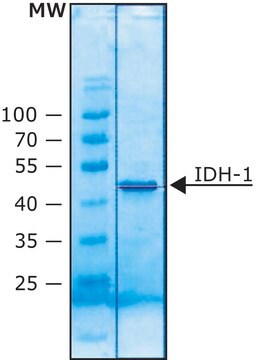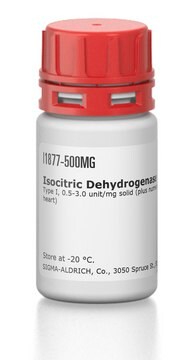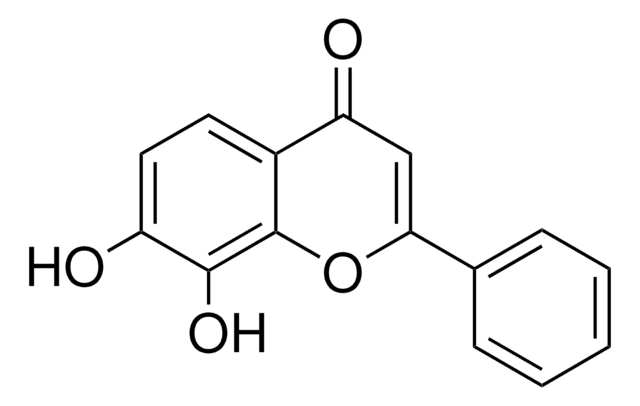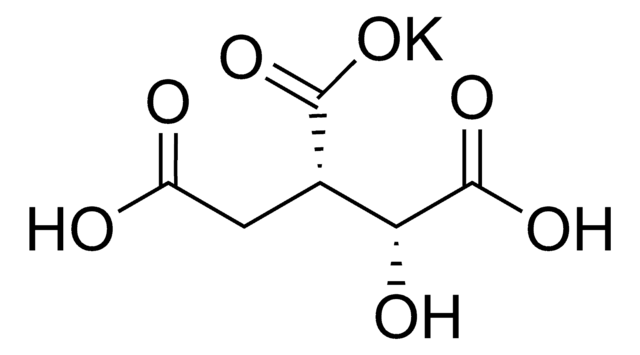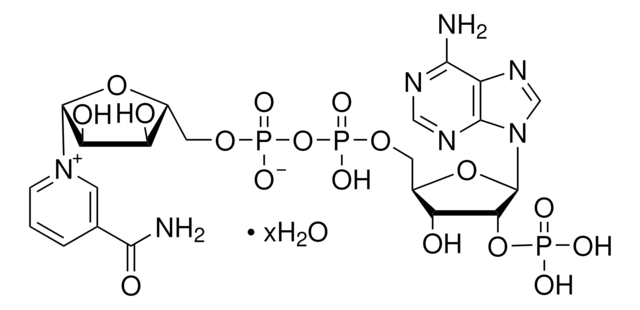I2411
Isocitrate Dehydrogenase 1 (NADP+) human
recombinant, expressed in Sf9 cells, ≥90% (SDS-PAGE)
Synonym(s):
IDH1, Isocitrate Dehydrogenase Cytoplasmic
About This Item
Recommended Products
recombinant
expressed in Sf9 cells
Quality Level
Assay
≥90% (SDS-PAGE)
form
buffered aqueous glycerol solution
mol wt
47.6 kDa
concentration
≥0.30 mg/mL protein (Bradford)
NCBI accession no.
relevant disease(s)
cancer (lung)
shipped in
dry ice
storage temp.
−70°C
Looking for similar products? Visit Product Comparison Guide
General description
Application
Biochem/physiol Actions
Physical form
Storage Class Code
10 - Combustible liquids
WGK
WGK 1
Flash Point(F)
Not applicable
Flash Point(C)
Not applicable
Choose from one of the most recent versions:
Already Own This Product?
Find documentation for the products that you have recently purchased in the Document Library.
Customers Also Viewed
Protocols
We describe here a rapid and sensitive method to separate and measure D-2-OHG and L-2-OHG enantiomers using high-resolution mass spectrometry (HRMS) detection.
Chromatograms
application for HPLCOur team of scientists has experience in all areas of research including Life Science, Material Science, Chemical Synthesis, Chromatography, Analytical and many others.
Contact Technical Service